First-year students Jacob Baltzegar, Kayla Duperrouzel, Ricardo Hughes, Zain Imam and Lauralei Singsank are among this year’s class of Karsh-Dillard Scholars at the University of Virginia School of Law.
The full-tuition awards, given to top J.D. candidates with demonstrated leadership qualities, are funded as part of a historic gift by Martha Lubin Karsh ’81 and Bruce Karsh ’80, who contributed $44 million to the Law School in 2018. The scholarships also bear the name of the Law School’s fourth dean, Hardy Cross Dillard ’27.
Professor Leslie Kendrick ’06, a former Dillard Scholar, said she is “impressed by the diverse range of experiences the Karsh-Dillard Scholars bring to the Law School.”
“The Law School has long attracted students who could go to law school anywhere and choose to make UVA their home because of our superb academics, outstanding career placements and wonderful community,” she said. “Through the generosity of Bruce and Martha Karsh, we look forward to continuing and building upon that tradition.”
The students spoke about their experiences prior to law school and why they chose to pursue a J.D. at UVA Law.
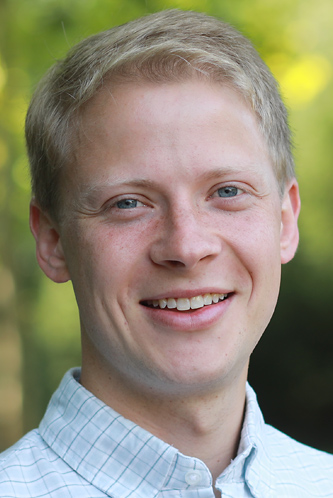
Jacob Baltzegar
Hometown: Irmo, South Carolina
Education: B.S. in chemical engineering, University of South Carolina; M.S. in engineering, University of Texas at Austin
Notable work/educational experience: As an undergraduate, I had the opportunity to assist with carbon capture research, study sustainability policy in Germany and work full time at a plastic fibers manufacturing plant. Before law school, I worked in research on industrial water pollution.
Why study law? I’ve always felt driven to a profession with utility, where I could help people really affected by societal problems. My background is in engineering, but combining that with a legal education will allow me to use my technical experience in direct contact with clients and the justice system. Plus, I’ve had an interest in government and the law since I was a little kid.
What would you like to do with your law degree? I'm trying my best to keep an open mind, but I know I have an interest in science-adjacent fields, particularly environmental and land use law. I could see that interest leading to a career in government or private practice.
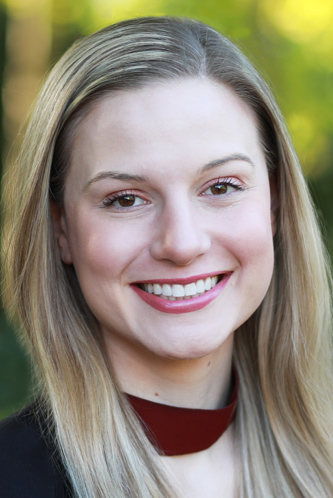
Kayla Duperrouzel
Hometown: Fairfax Station, Virginia
Education: B.A. in political science, Yale University
Notable work/educational experience: During college, I had the chance to work alongside law students and faculty at the Universidad de las Américas in Quito, Ecuador. We completed an investigative project regarding the elevated incidence of domestic violence in Ecuador. The social problem remains largely unreported. Our research included interviews with government officials, politicians, judges and law enforcement officers, as well as women in rural villages.
Why study law? While in Ecuador I witnessed the vast discrepancy between existing legal protections and the public’s knowledge of, and trust in, these remedies. An effective lawyer can help rectify that disparity by demonstrating just how empowering the law can be when utilized skillfully. Attorneys have the ability to give their clients a path forward that otherwise may have been left unexplored.
What would you like to do with your law degree? I am definitely open to exploring different practice areas. My personal experience as a child of entrepreneurs has certainly helped shape my career aspirations, as I have been able to see the impact that expert legal counsel can provide to an evolving company. Executives are constantly tasked with balancing countless priorities, and staunch legal guidance helps make this juggling act a more manageable one. It would be incredible to give business leaders the freedom to focus on growth and innovation, secure in the knowledge that their legal interests are being championed.
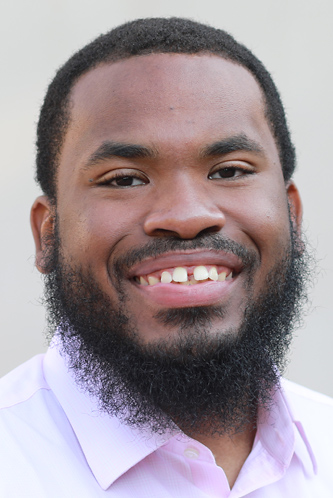
Ricardo Hughes
Hometown: New York City
Education: B.S. in criminal justice, John Jay College of Criminal Justice
Notable work/educational experience: I used to work as a sales lead in a women’s luxury clothing store. As someone who had zero previous experience with women’s clothing (and who couldn’t even describe the difference between a romper and a jumpsuit), it felt like I was dropped into a foreign country where people spoke a foreign language and dealt in a foreign currency — and it was awesome. Starting from zero was beautifully humbling, and it kept every day full of surprises.
Why study law? I believe that nearly every source of change in this world, be it social, political or economic, comes either as a result of legal evolution, or has said evolution nestled (quietly or otherwise) in its shadow. I am someone who wants to learn how to instigate change in the world around me, so it feels natural to first study the law that begets, or will adapt in response to, said change.
What would you like to do with your law degree? My girlfriend wants to start her own business, and while I have zero latent talent in most business-related areas, I do think that being her legal counsel would be a very cute, power couple move. Likewise, I would love to provide legal advice for startup companies, with a particular focus on ones that originate in or serve low-income communities.
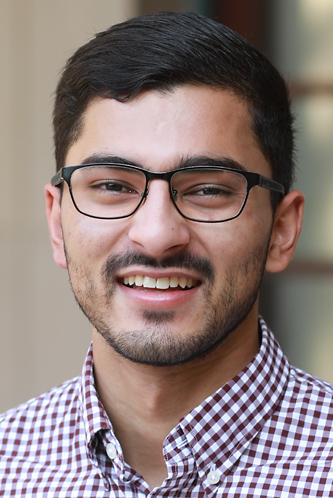
Zain Imam
Hometown: Dallas
Education: B.A. in political science, Rice University
Notable work/educational experience: During the summer after my junior year, I had the opportunity to intern at the Civil Rights Division of the Department of Justice. I worked in the Voting Section with attorneys overlooking cases regarding the Voting Rights Act. My time there opened my eyes to the strengths — and weaknesses — of one of the most transformative pieces of legislation in American history. My time at the Department of Justice left me with a deep-seated belief that the government can be used as a force for good, but ultimately it is up to us to use it as that force for good.
Why study law? I see the law as the most effective means of bringing about the changes I want to see in the United States, whether it's making our roads safer through more effective federal regulation or increasing voter turnout among Muslim Americans by eliminating barriers to the right to vote. While these two areas might be very different and require very different approaches, they are both equally important to me.
What would you like to do with your law degree? While I am not certain what I will eventually do with my law degree, I do know one thing for sure — I hope to use my degree to serve my community and country in whatever way I can!
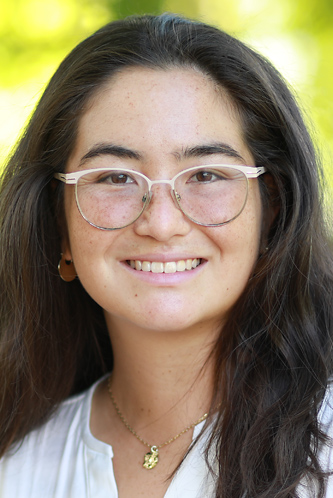
Lauralei Singsank
Hometown: Maui, Hawaii
Education: B.A. in music and political science, with a minor in peace studies, University of Oregon Honors College
Notable work/educational experience: In 2018 I studied at the National University of Singapore for a semester. As someone from a different island in a different ocean, I loved the community and culture I found. At NUS I took a class on death and dying, which sparked my interest in genocide prevention. It’s what inspired me to add a peace studies minor, and also ended up being the topic of my undergraduate thesis. After graduating college in 2020, I served in AmeriCorps for a year as a college counselor and had a stint as a fact-checker.
Why study law? I'm hoping to give back to my community with my law degree. Hawaii's brain drain is real, and it's difficult to get back to Maui if you leave for college. I want to find a niche on the island where I can affect some kind of meaningful change, whether that be immediately after graduation or 10 years down the line.
Founded in 1819, the University of Virginia School of Law is the second-oldest continuously operating law school in the nation. Consistently ranked among the top law schools, Virginia is a world-renowned training ground for distinguished lawyers and public servants, instilling in them a commitment to leadership, integrity and community service.


